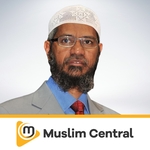Zakir Naik – How can the Youth in Bangladesh Balance Modern Education with Islamic Teachings

AI: Summary ©
The speaker discusses the importance of education in addressing contemporary challenges faced by youth in Bangladesh. They explain that Islam is a must for young Muslims, and that schooling is an important part of educating children on the Islamic language. The schooling is a unique combination of both education and traditional Islamic teaching, and it is beneficial for both children and the youth.
AI: Summary ©
Question number four, education and youth.
What role should Islamic education play in addressing
the contemporary challenges faced by the youth in
Bangladesh?
How can young Muslims in Bangladesh balance modern
education with traditional Islamic teaching?
The first guidance given in the Quran to
humanity was not to pray, was not to
fast, was not to perform Hajj, it was
Ikrah, it was proclaim, it was recite.
So the first guidance given to humanity in
the glorious Quran was to educate yourself.
And it's compulsory on every Muslim man or
woman to acquire knowledge.
That is Hadith of the Prophet.
So education is a must regarding education and
youth and of course for the youth it's
more important.
And how should you incorporate Islamic teachings?
We had launched a school in Bombay in
the year 2001, Islamic International School and our
motto was education for both the worlds.
That means educate the children on the Islamic
pattern.
At the same time, it was affiliated with
the IGCSA, the degrees coming from UK.
So they were the formal subjects and the
Islamic subjects.
The formal degree recognition came from UK.
So we were registered under the IGCSA system.
It's the largest recognized system in the world
where there are tens of thousands of students
every year passing.
So no one will say it's a Muslim
-owned school or it's an Indian school.
The degree is coming from UK.
So our motto was education for both the
worlds.
So it was formal education and Islamic education.
We saw to it that we taught Islam
from nursery and started reading the Quran in
junior KG, senior KG.
He started from first standard.
By the time the child reaches fourth or
fifth, he's Hafiz of Quran.
So we select some students and it was
a dual language of instruction, Arabic and English.
Arabic is the language of the Quran, language
of the Hadith.
So we felt it's important that our students
know Arabic as a language.
So if you see that in our school,
we had Deen and Duniya both put together
and the classes were divided in the full
week in five days to 60 classes.
If you analyze, maybe 35-40% were
in Arabic, the remaining in English.
And even the English subjects, there were separate
subjects called Islamic studies.
It was talking about Islam in English language.
So those who don't understand Arabic, etc, they
understand directly and they gain.
So it was Islamic studies in English.
So if you put Arabic together and the
Hif together and the Islamic subjects in Arabic,
Tawhid, Sharia, Fiqh, etc, along with the English
Islamic studies put together, so more than 50
% was Islam.
Mashallah.
So it was a unique school and was
doing very well.
But when we did Hijrah, of course, now
it's not the same as before.
But my advice is that we should have
this combination of education for both the worlds
like how we had in Bombay.
And this will be the best to educate
the children and the youth.
They will be inclined towards modern technology, etc.
But according to Sharia compliance, this will be
the best and the country will progress maximum
in this.